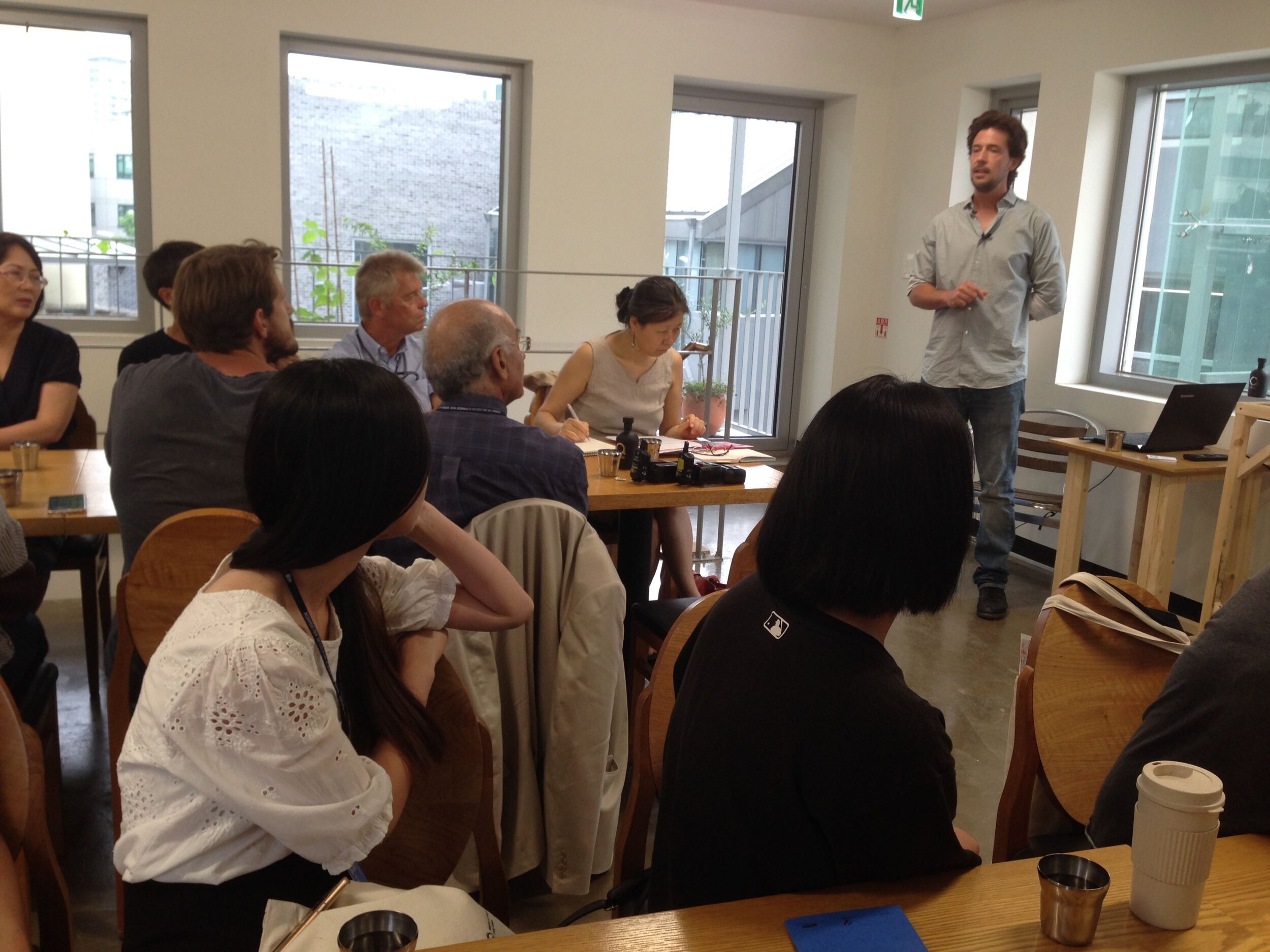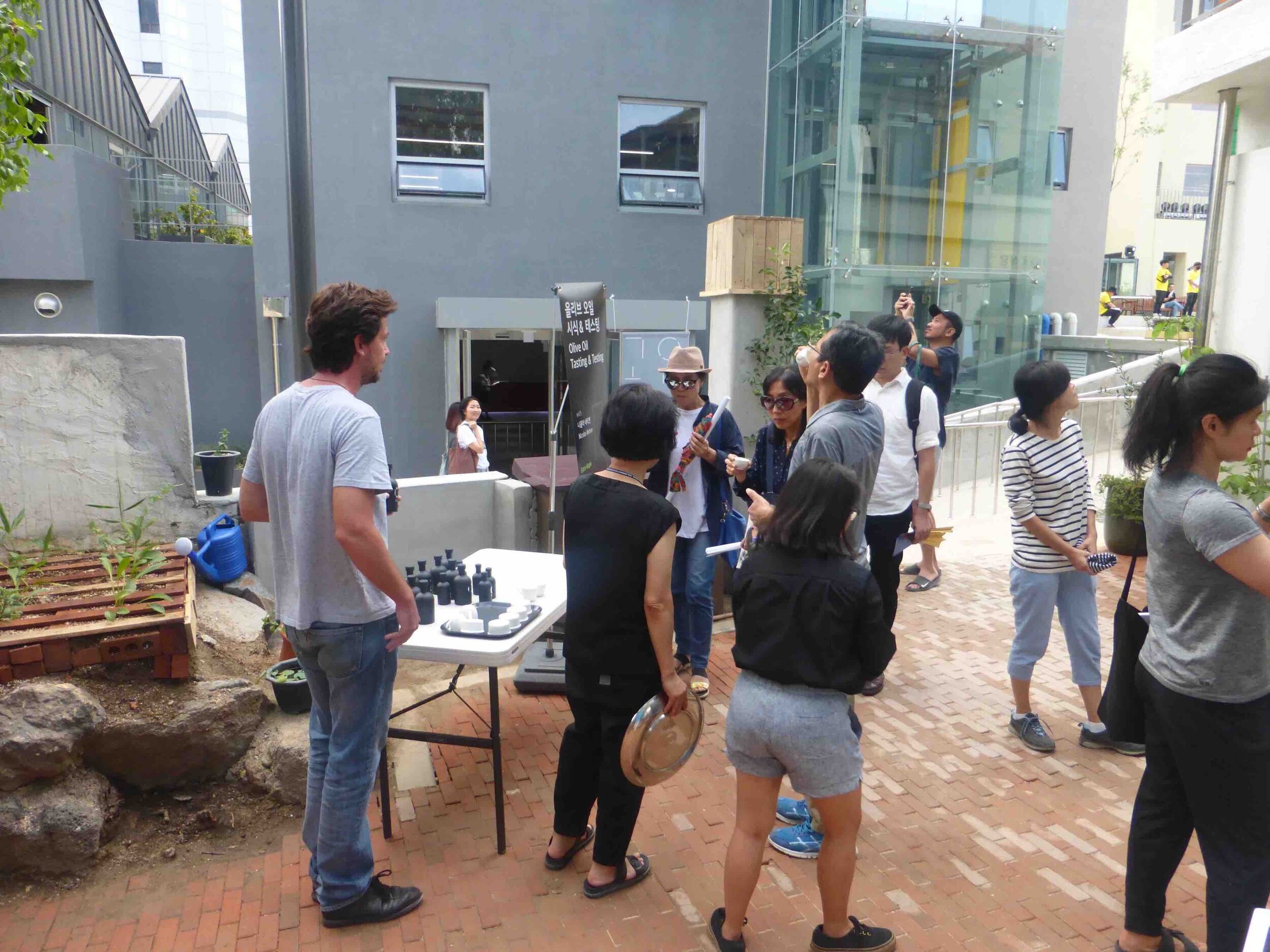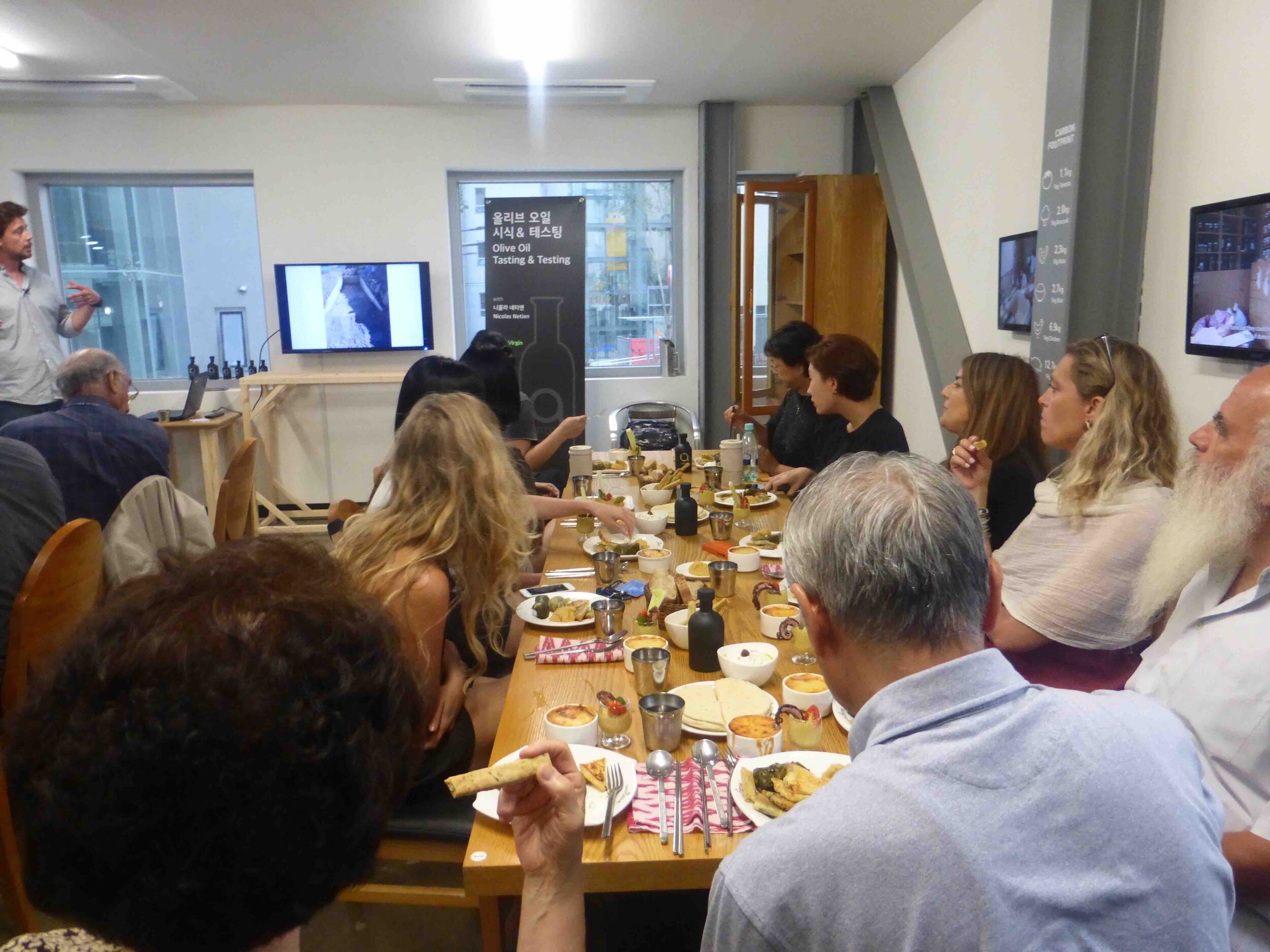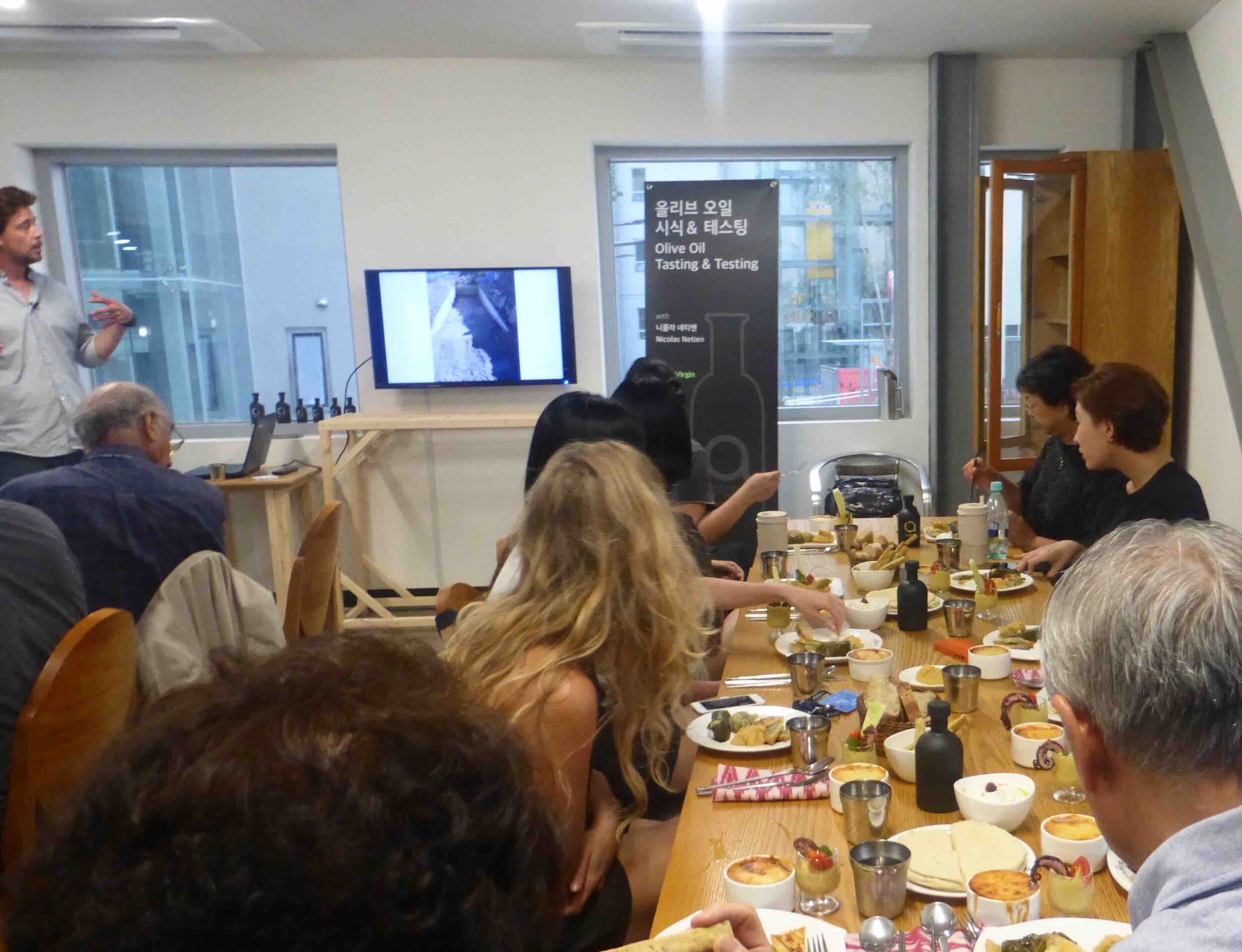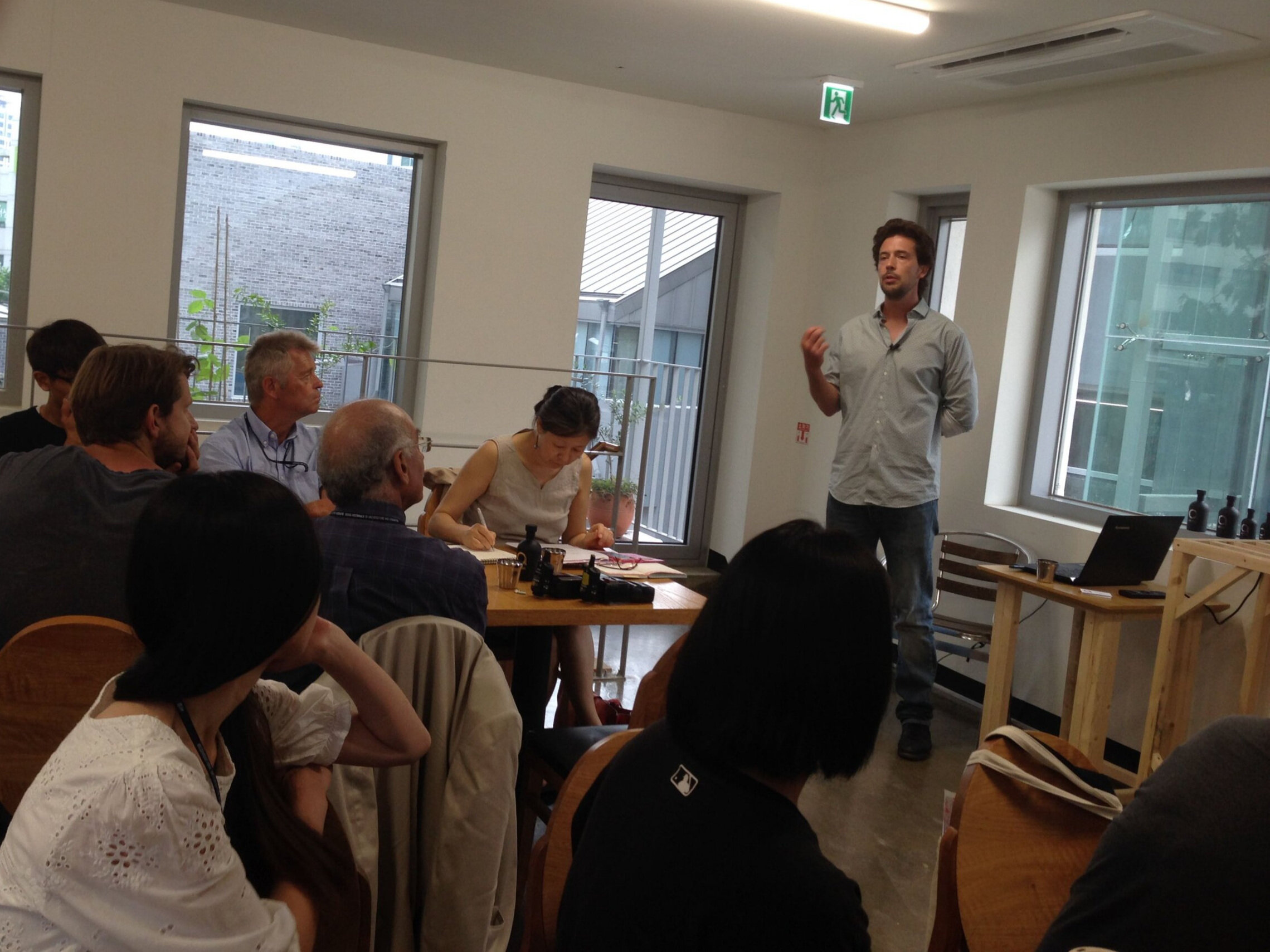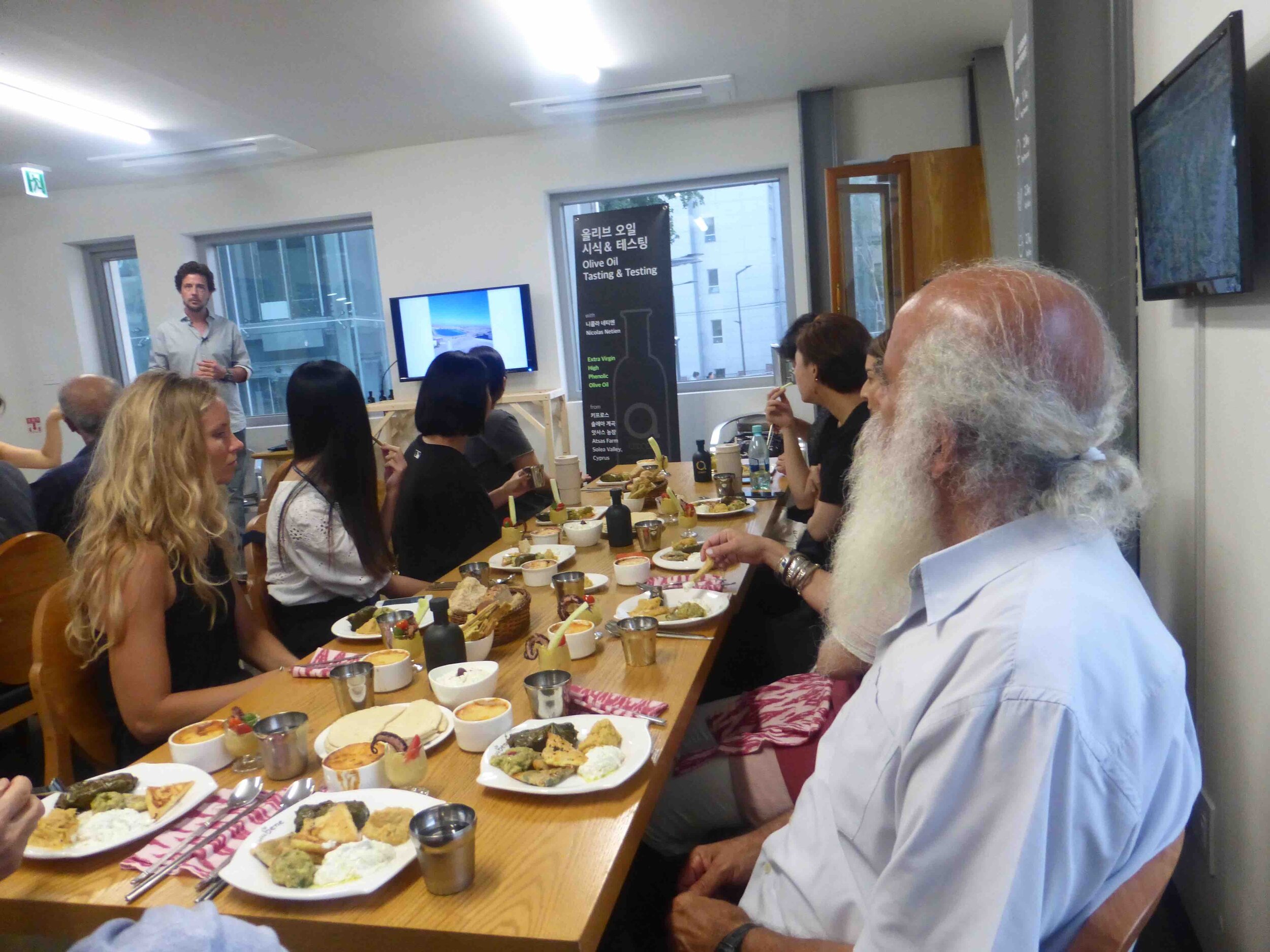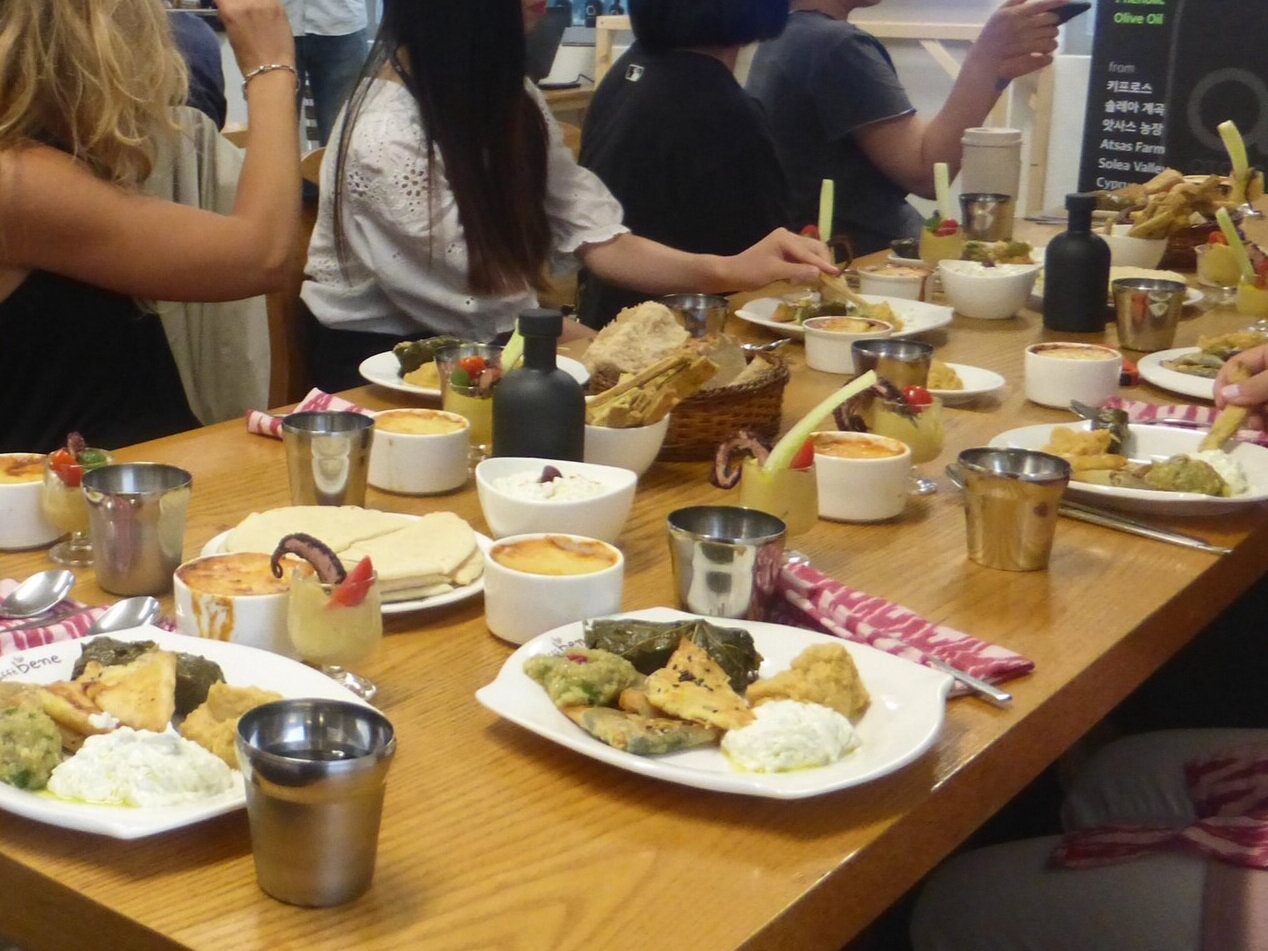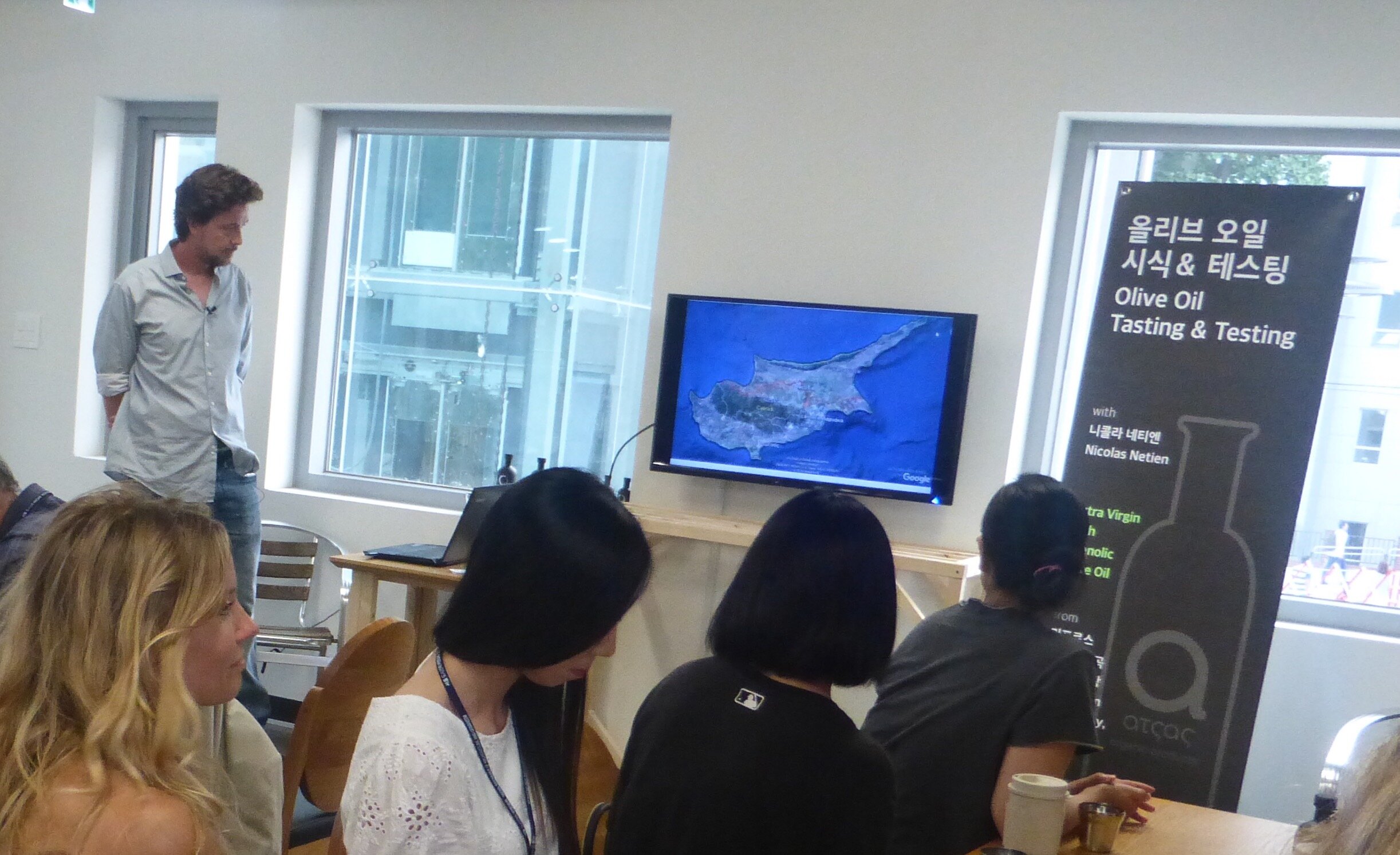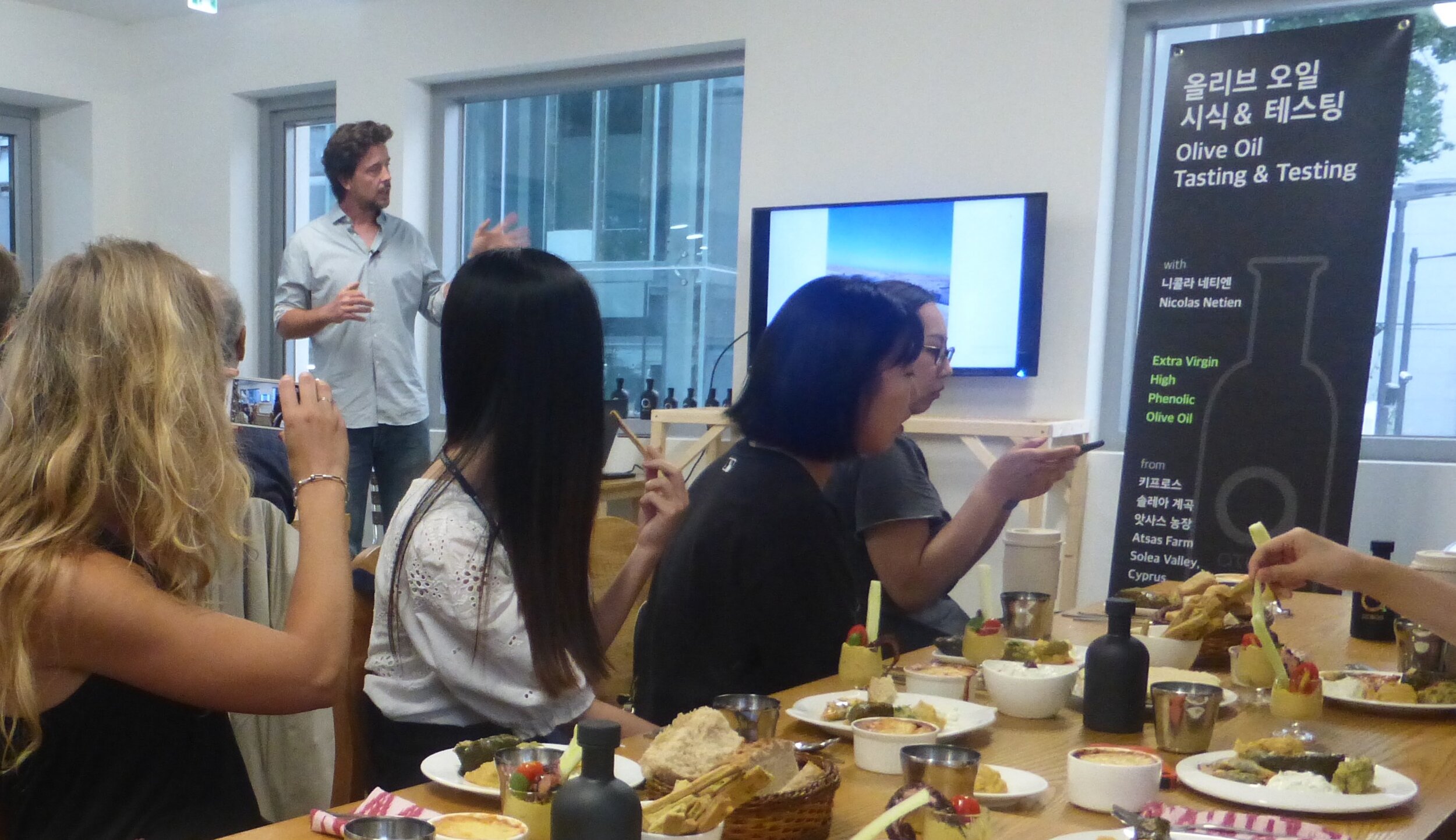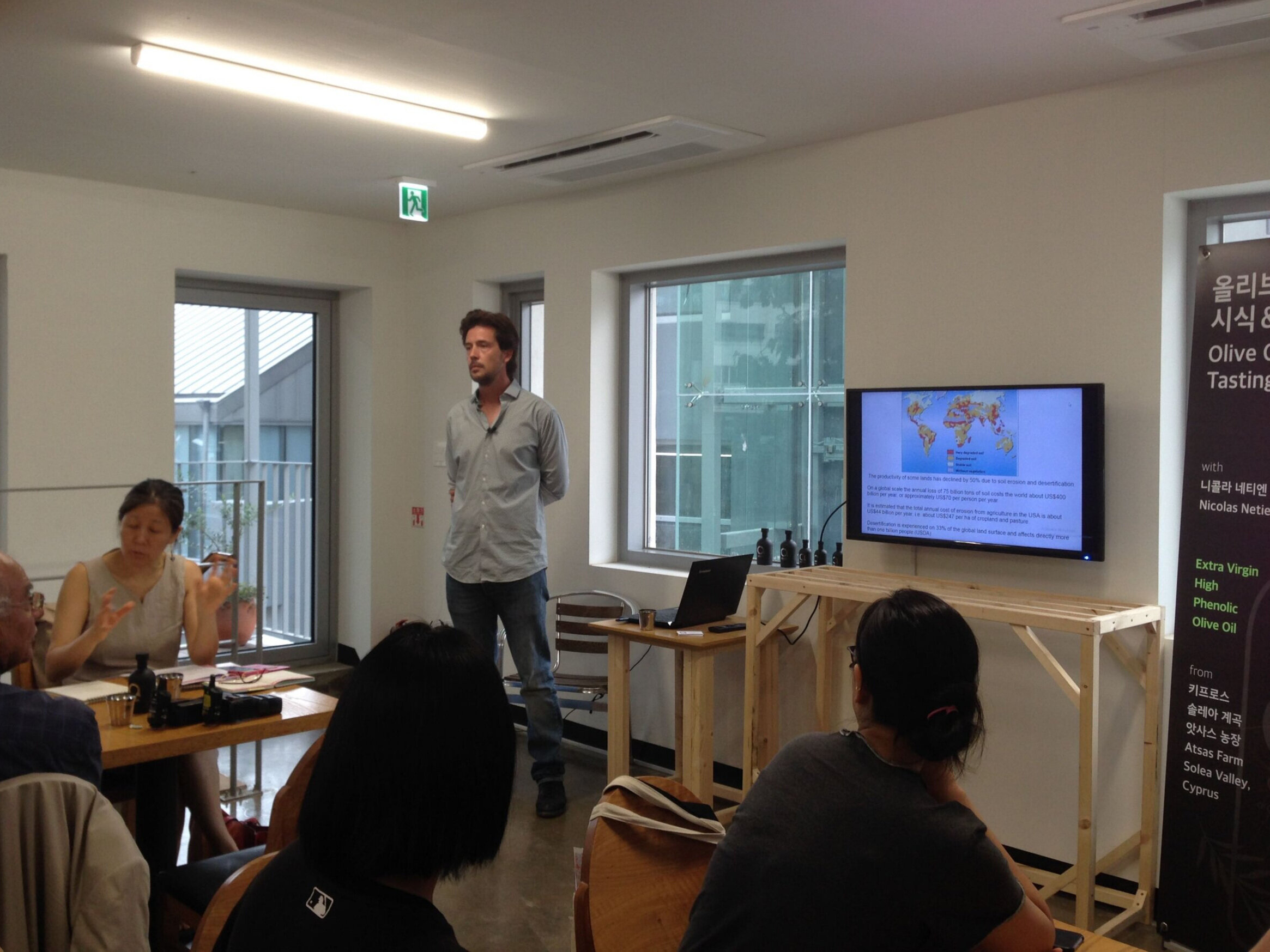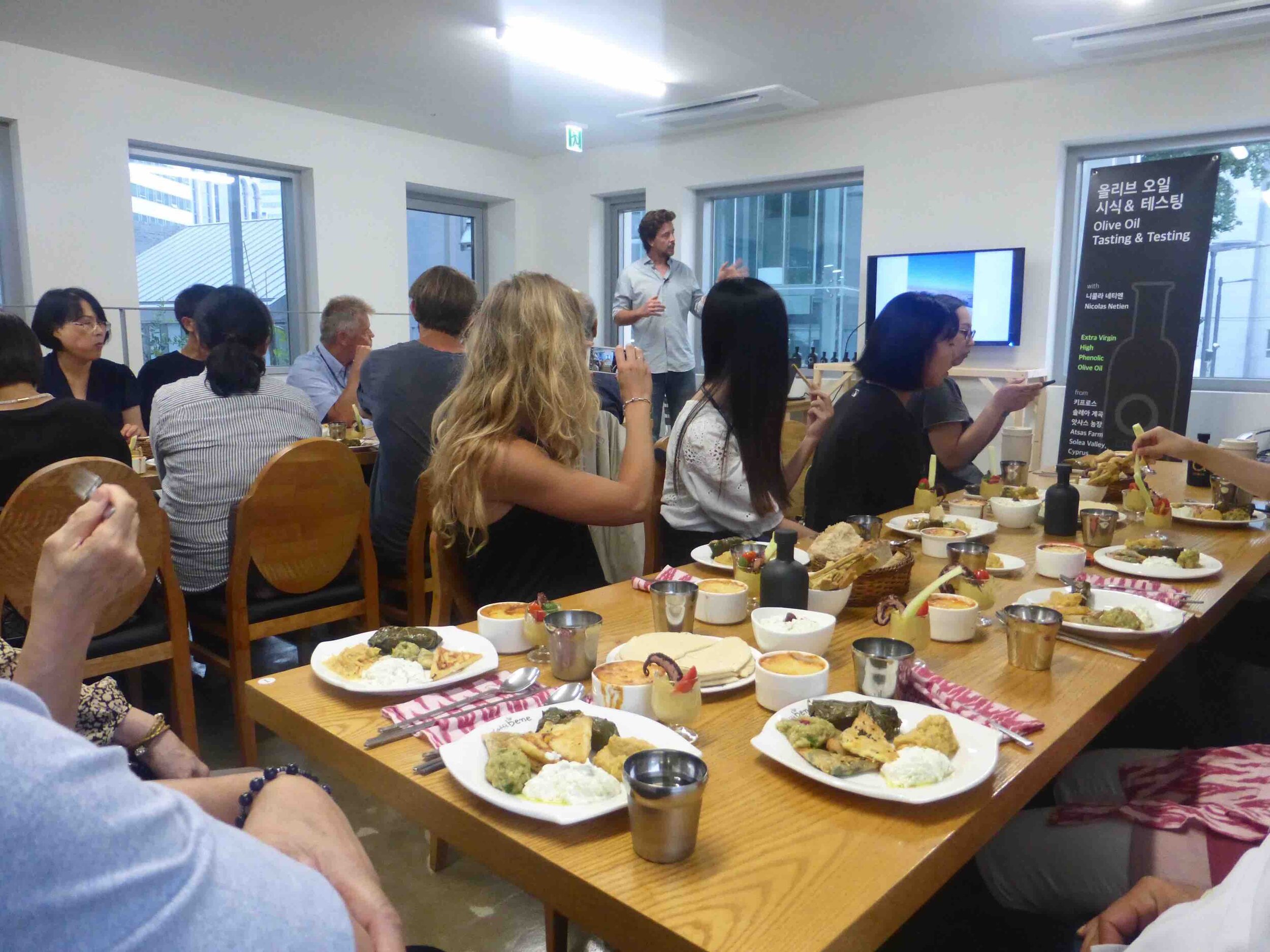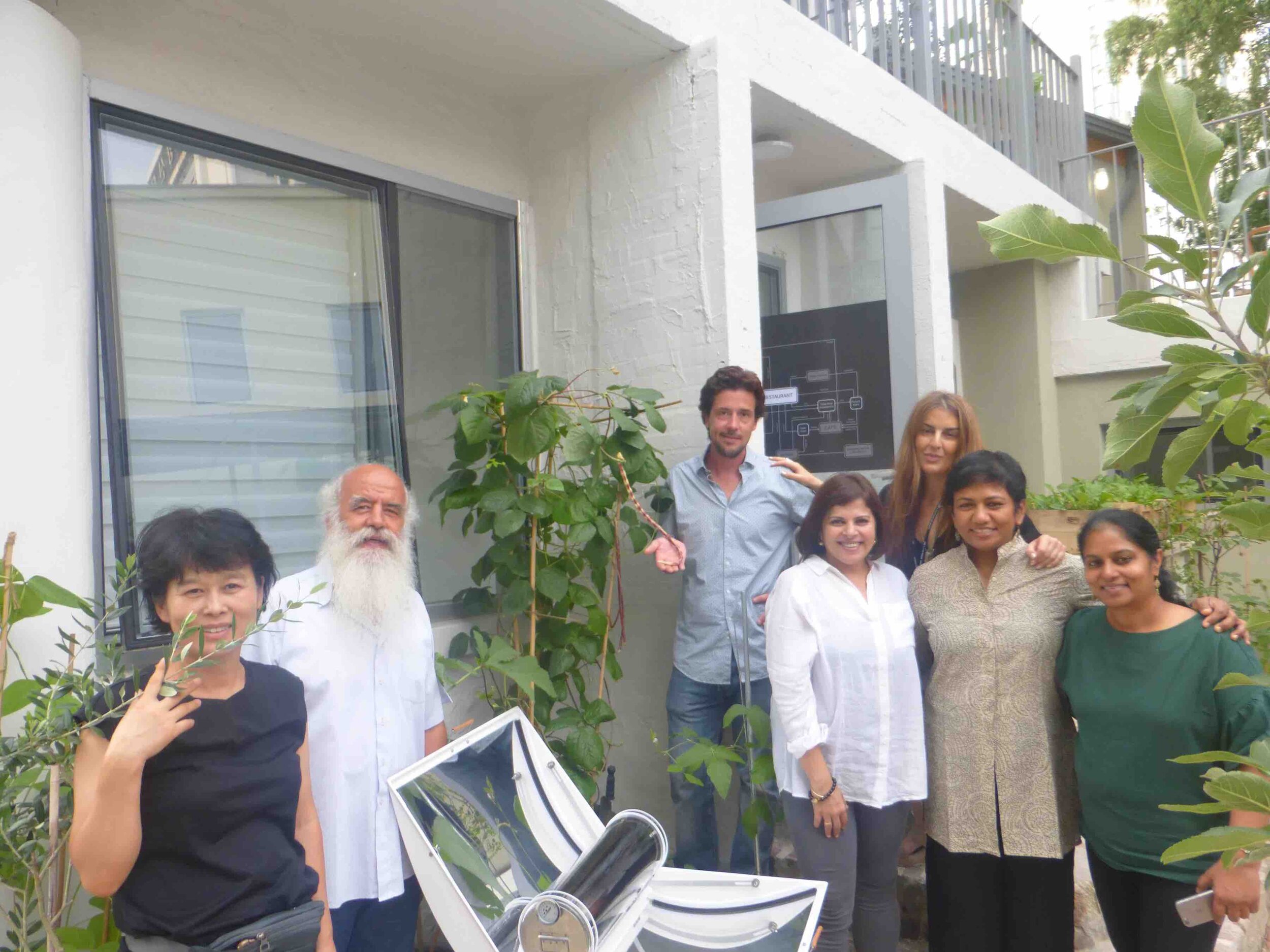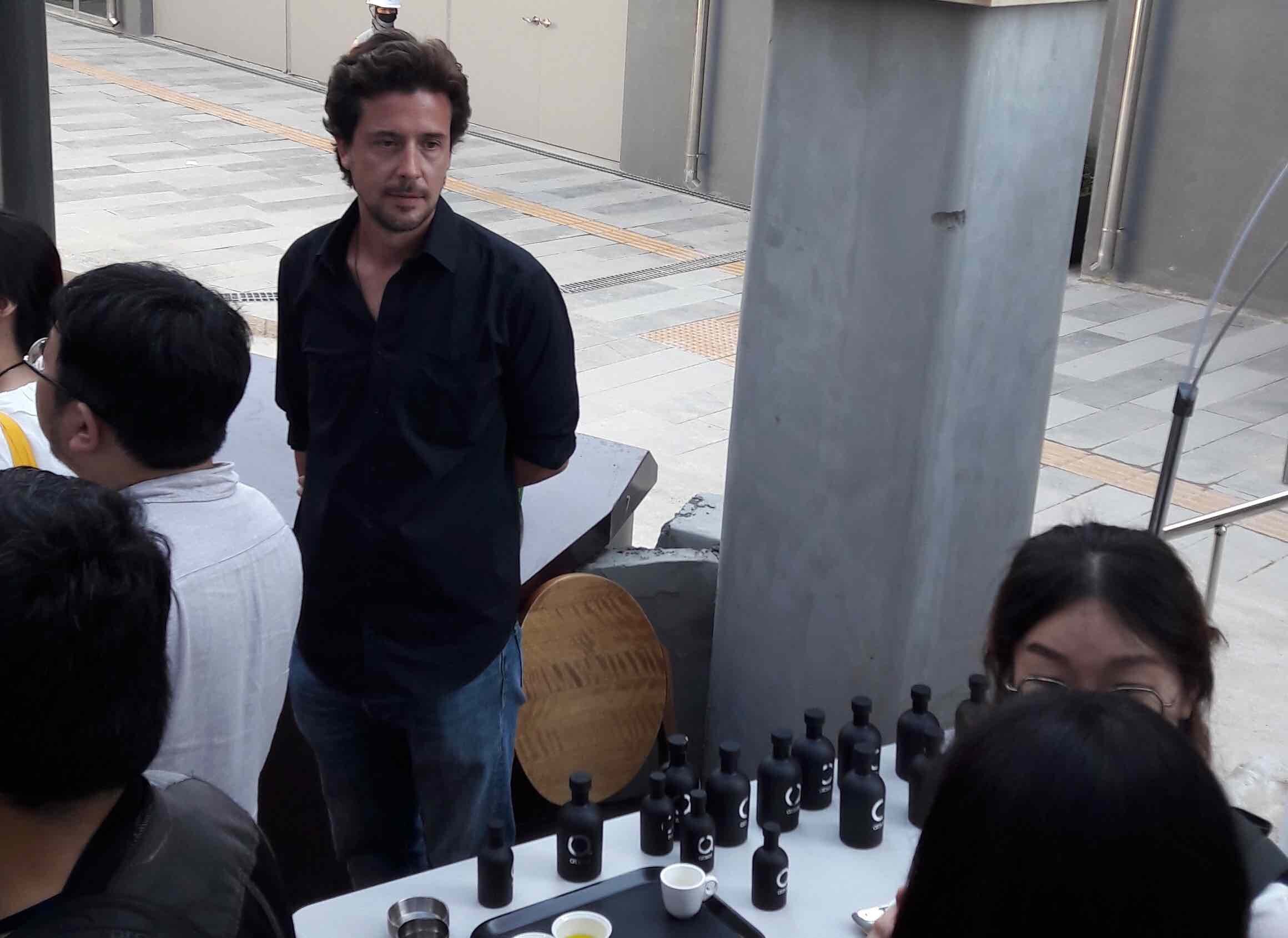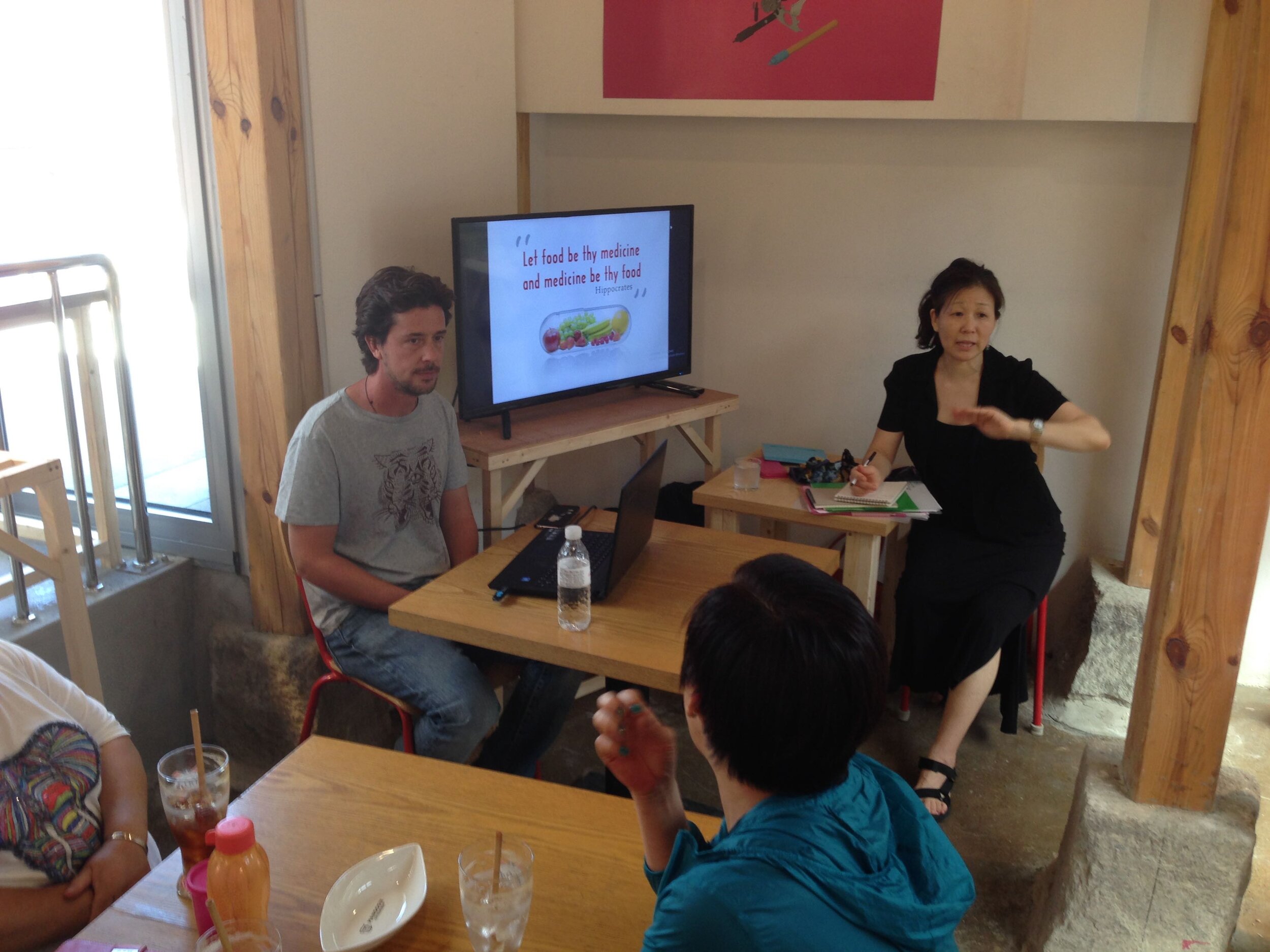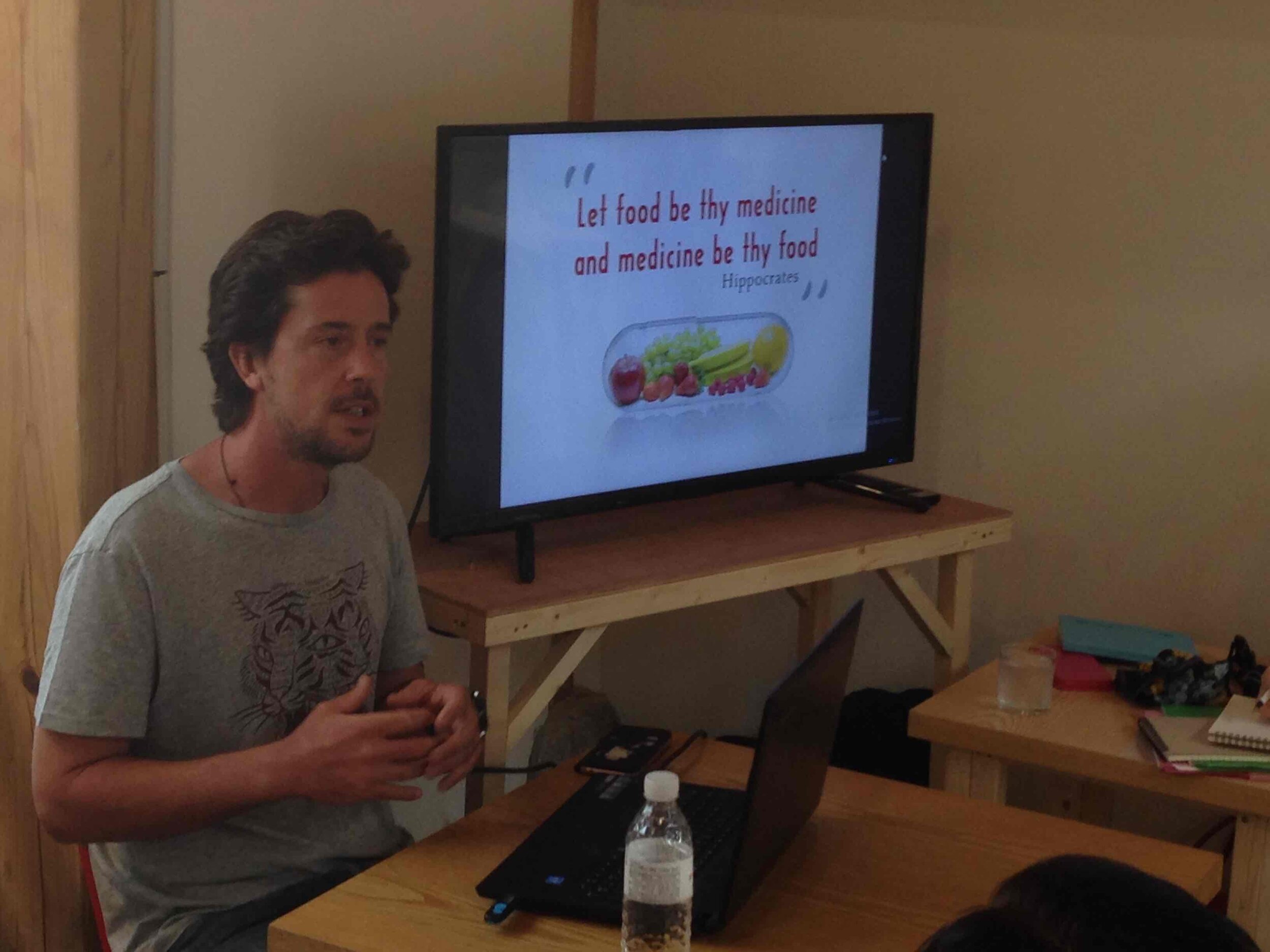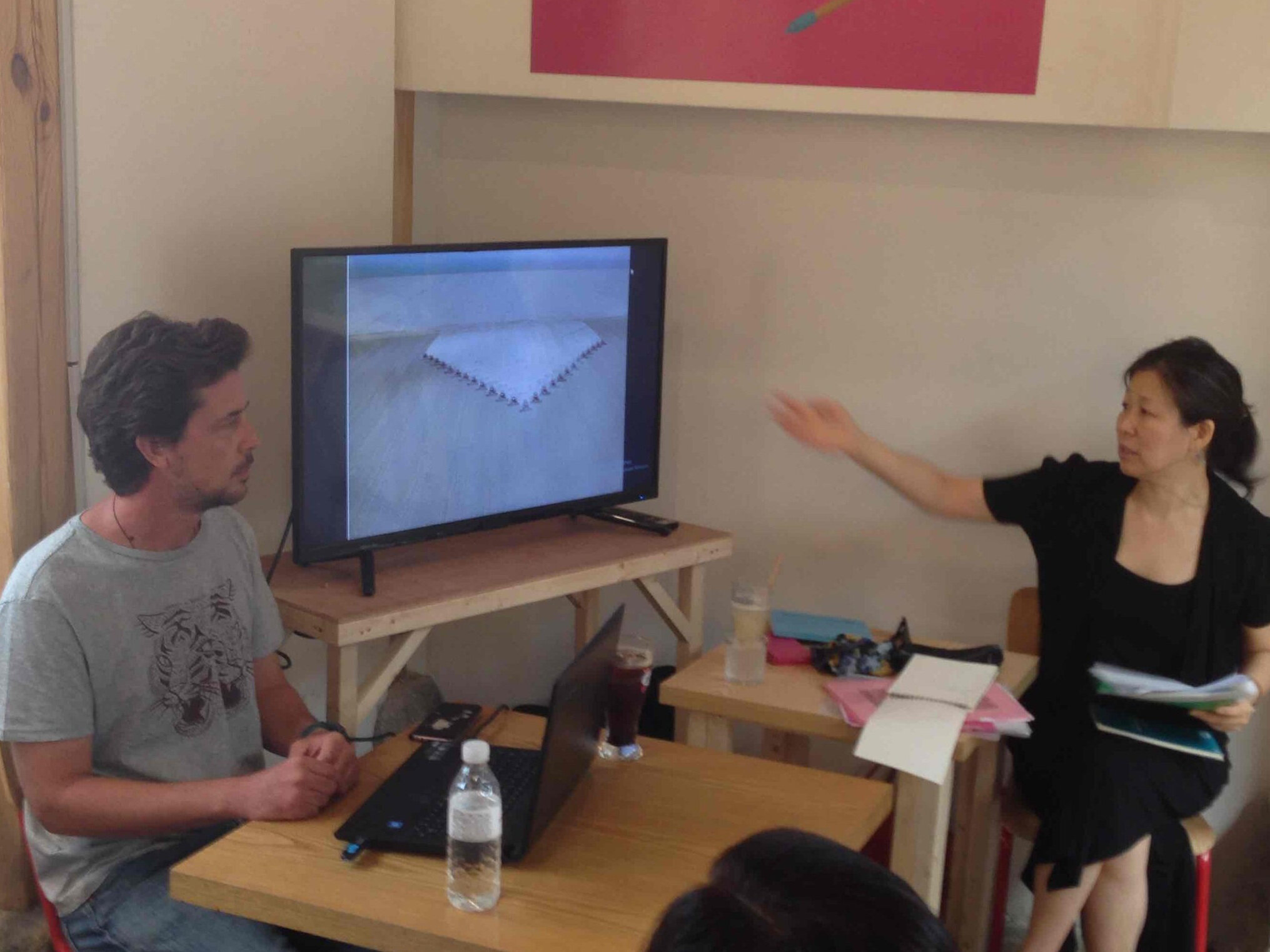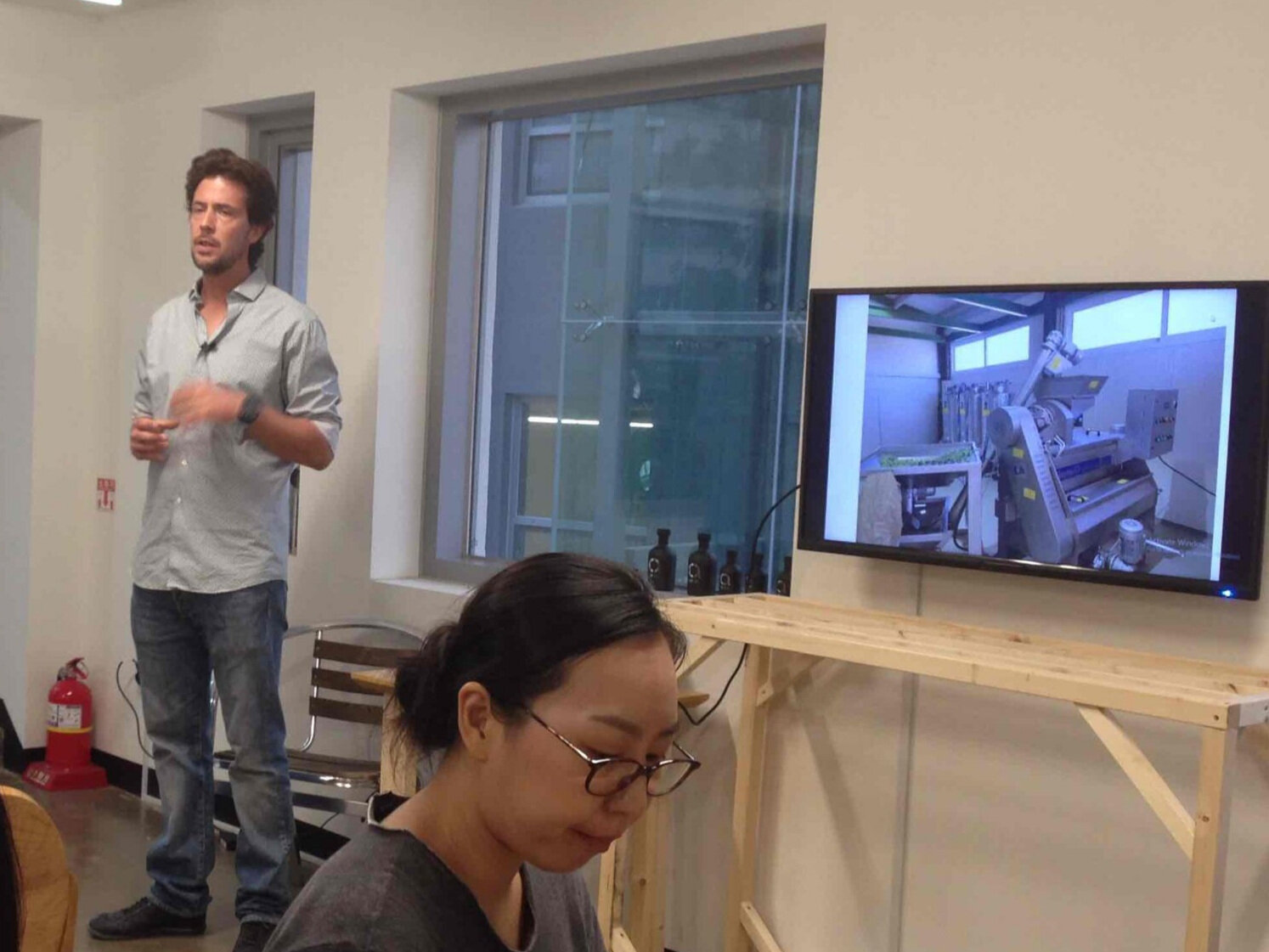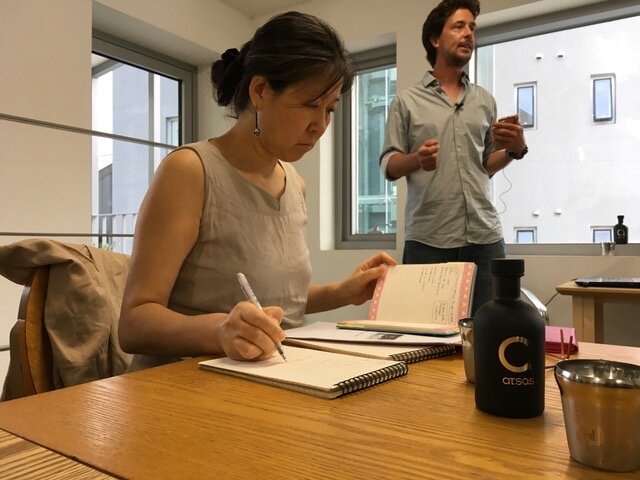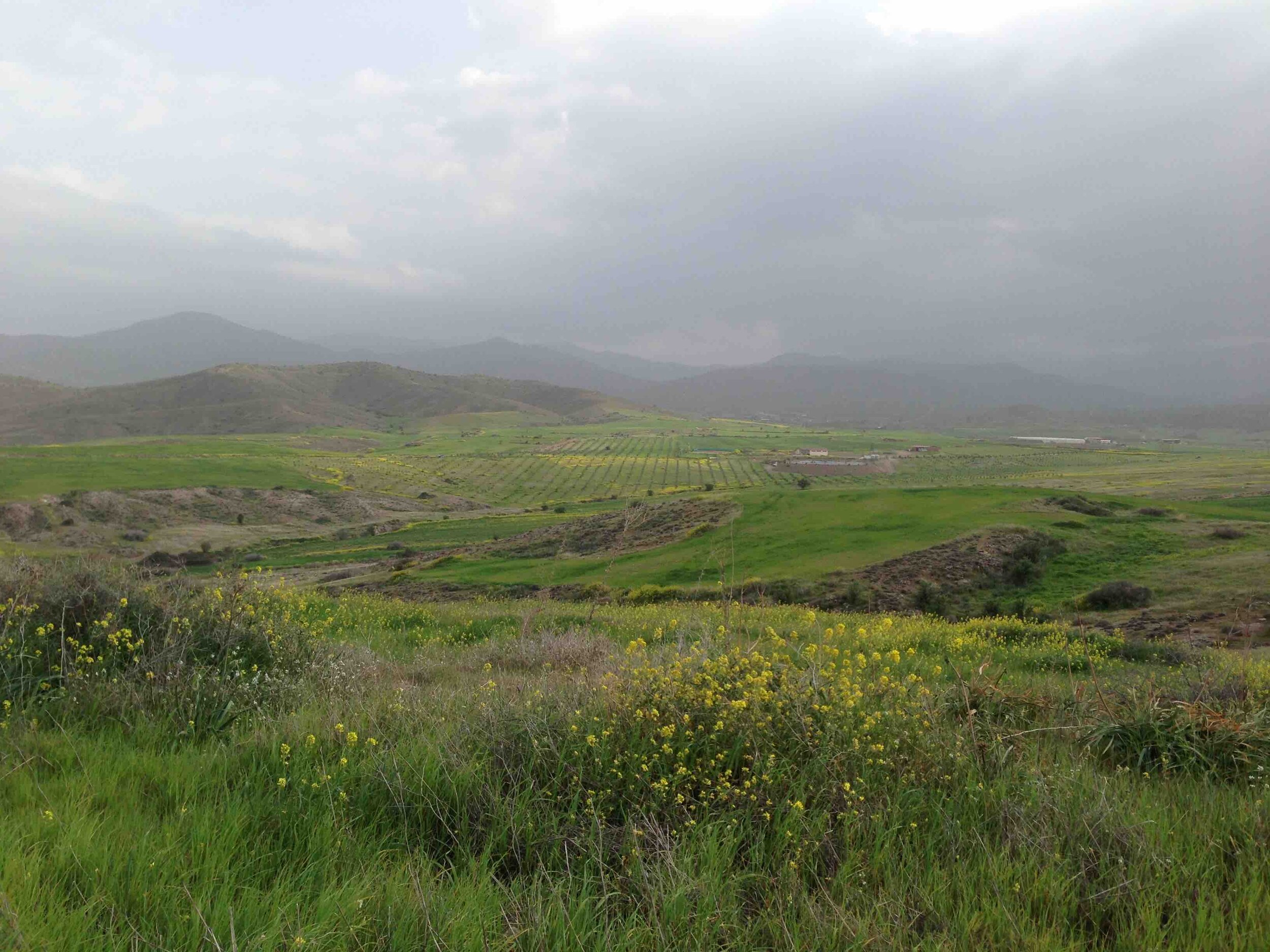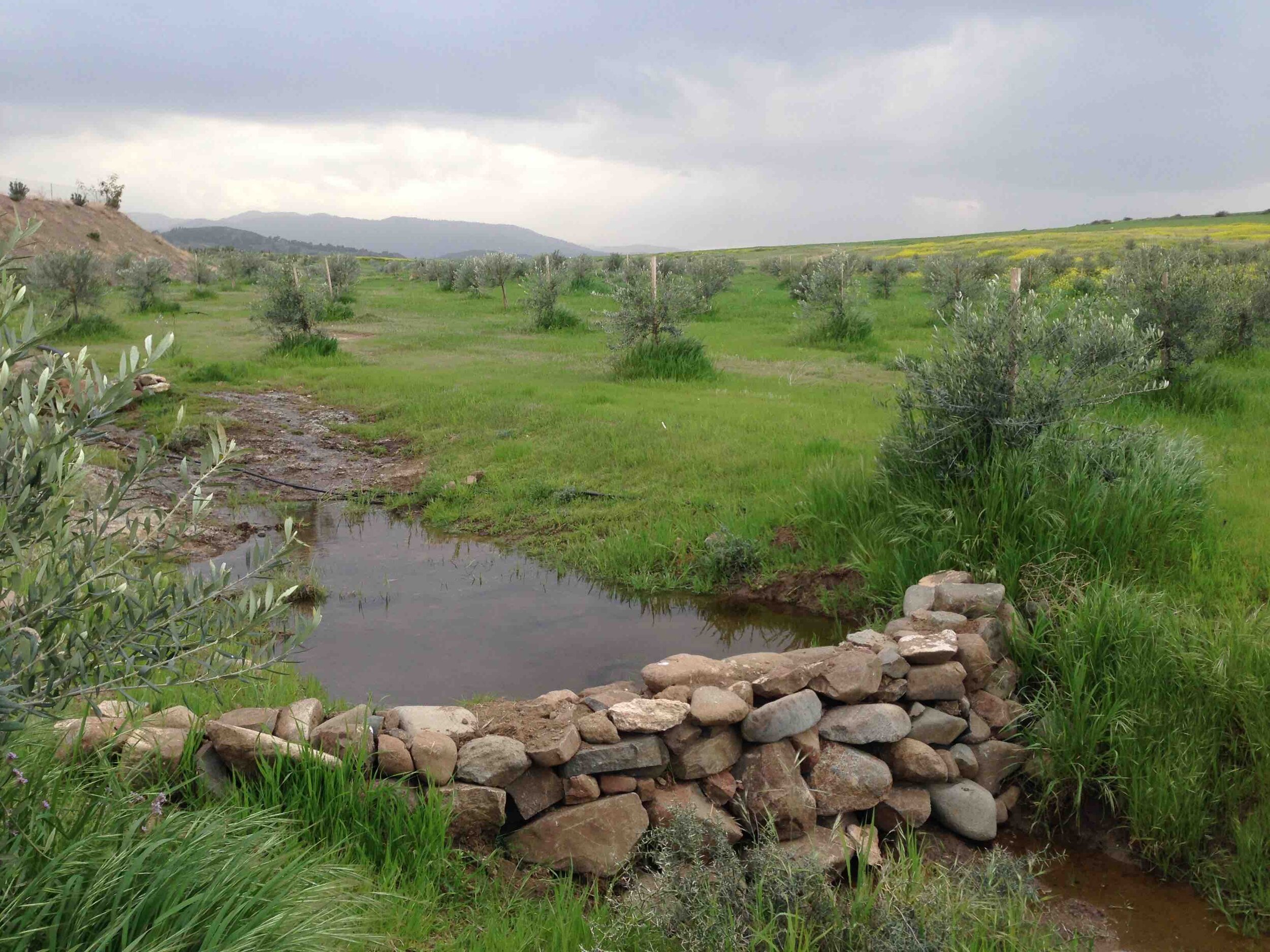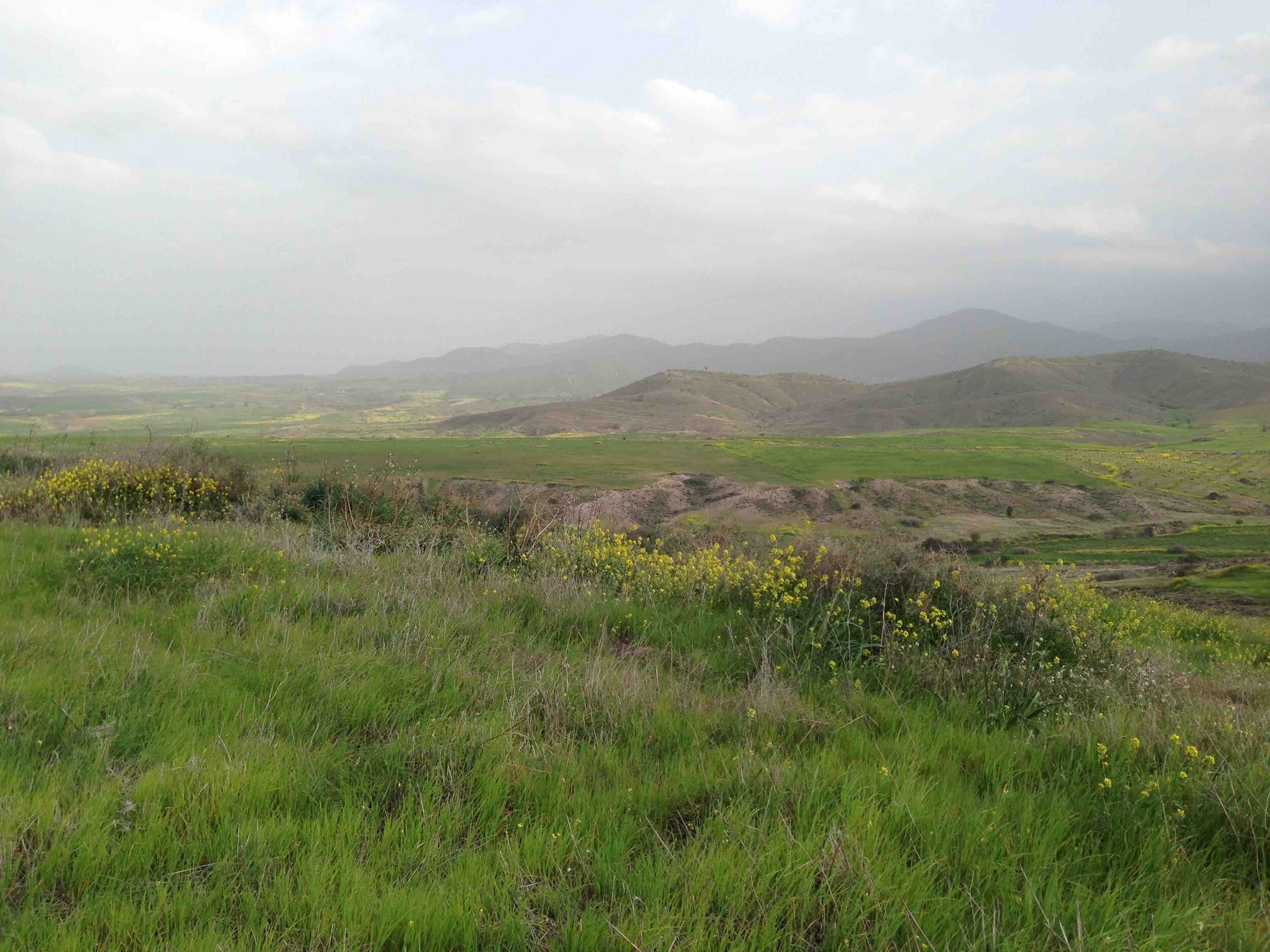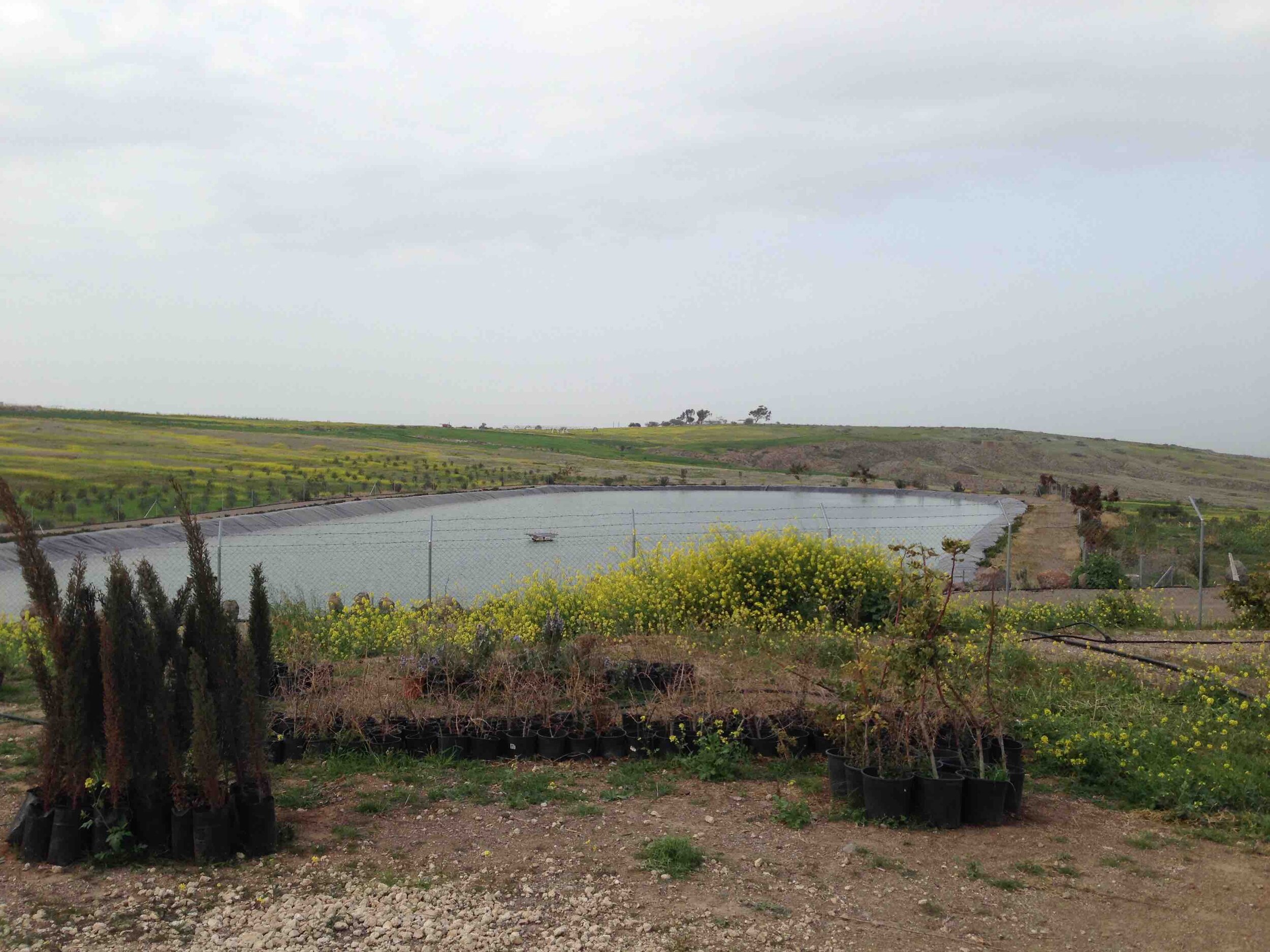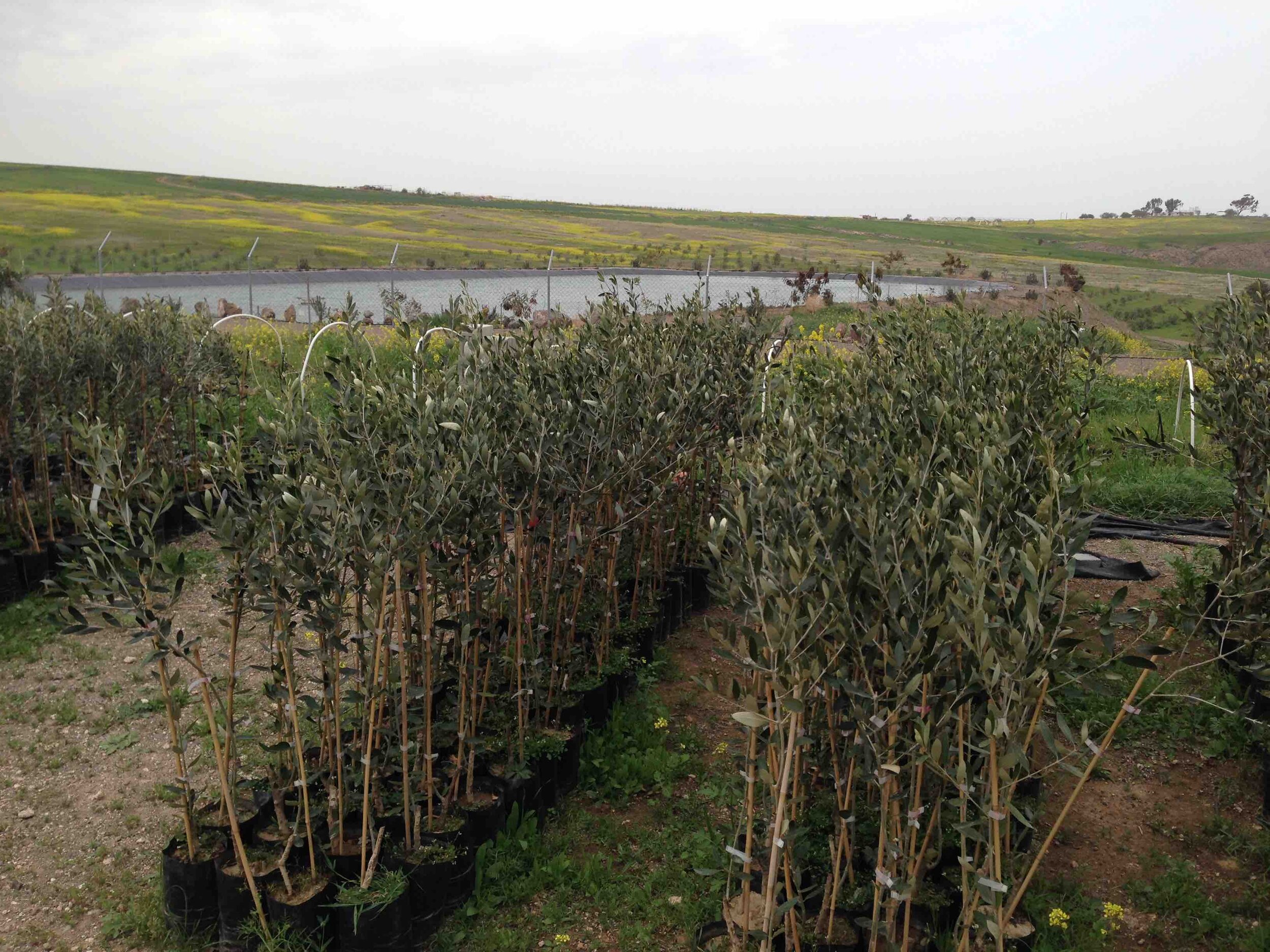SEOUL BIENNALE | Themed Dinner #1: Under the Olive Trees
3 September 2017 at the Urban Foodshed Restaurant
The Urban Foodshed Restaurant was an essential public project component of the Seoul Biennale. The Foodshed looked at the future of the city of Seoul through the lens of food—which results from the interaction of water, land, air, and energy—as well as the problems surrounding its production, distribution, consumption and recycling. Four of the top chefs from the Eden restaurant in Chennai resided in Seoul during the Biennale, offering vegetarian dishes from southern India at the Foodshed. Every Saturday the Foodshed offered a themed discussion dinner, where all sorts of guests came to speak: farmers, botanists, entomologists, soil biologists, environmentalists, administrators, etc. who ate and discussed with visitors on food-related issues, such as urban farming, biodiversity, seed sovereignty, farming and climate change, genetically modified food, shrinking bee populations, and sustainable agriculture. Menus were prepared for these themed dinners by different chefs depending on the cuisine, often created from locally-available foods, such as Korean weeds, wild beans, and other native ingredients.
For the first Dinner in the program, a variety of dishes from Middle Eastern and Mediterranean cuisine were prepared.
Talk: Nicolas Netien
(Atsas Organic Farm)
Theme: Agriculture and Climate Change
Host: Melina Nicolaides
(EM/MENA project curator)
Interpretation: Kyunghee Lee
Menu: Greek foods
Urban Foodshed: Professor Hyewon Lee
Talk by Nicolas Netien of Atsas Organic Farm
“Going Beyond Sustainable: The Global Case for Agro-ecology”
Agriculture, Climate Change, and High Phenolic Olive Oil
Our aim with the EM/MENA Project at the Biennale was to show that we do have an alternative to today's ‘conventional’ methods (farming practices, food production, water distribution, resource overuse etc) and how important it is to bring to the mainstream the innovative nature-based solutions that can empower people to restore their natural environments, and how to adapt this practical knowledge to the realities of their own environment, climate and lifestyle. As the Eastern Mediterranean and MENA region is already experiencing chronic water scarcity, impending food insecurity, severe impacts of climate change and environmental degradation—issues that could affect Korea in the not too distant future—our hope was to share some knowledge and ideas from our part of the world that might add to the existing local knowledge.
The first in the Urban Foodshed series of themed dinners was that of ACTIVATE’s guest and speaker Nicolas Netien, Manager of permaculture-based Atsas Organic Farm—who contributed to various components of the Urban Foodshed, spending every day talking to the Seoul public and international visitors of the Biennale.
His 0fficial contributions included the workshop/talk entitled “Let Thy Food be Thy Medicine”, around the connections between human health, the methods of production, and the nutritional value of today’s food. He also contributed with “Tasting and Testing” presentations of Atsas Olive Oil for the public of the Biennale, to illustrate how the characteristic elements of this type of extra virgin olive oil distinguishes it from all others. Finally, in the first thematic dinner of the Biennale, he linked the topics of Agriculture, Climate Change, and High Phenolic Olive Oil, and how these practices can be adapted to any type of climate or geographical location of the world.
Nicolas is an environmental engineer, soil biologist, an authority on regenerative farming & dryland ‘integrated agro-ecology’ systems, and an enthusiast of sustainable community development. In Seoul he shared his knowledge on topics such as how the agro-ecological system has a crucial role to play in our future, not only in bringing diversity to ecosystems, protecting soil and water and seeds, creating food abundance for self-sufficiency, but also in actually reversing the effects of climate change. He also demonstrated how these methods can be applied and integrated into the dense urban environment and fabric of the city of Seoul, such as with soil-less food systems. Additionally, as a specialist in growing High Value Products in extreme dry climates, he revealed the science and biological strategies behind producing the world’s most nutritious olive oil—high phenolic oilve oil, the highest quality category of Extra Virgin Olive Oil—through his use of the farm’s limited water resources, its soil quality and geology. [i]
The philosophy of Atsas Farm, located in the most water-challenged location of the island, is to use the discipline of regenerative farming and permaculture design to create agricultural systems which have the diversity, stability and resilience of a natural ecosystem, working with nature rather than against her.
Over the years, Atsas has been turning an arid, rocky and very degraded environment with almost no top soil into a beautifully productive and diverse agro ecosystem, despite its very limited resources of water. The olive trees of Atsas were originally planted in rocky barren land, but on soil that had been untouched by human activity since the Turkish invasion in 1974.
After several years of applying permaculture methods and practices, the farm now hosts a incredible variety of mammals, birds, insects and plants. This newfound bio-diversity works in bringing harmony and resilience to the land, and helps the olive production, through the created conditions of natural pest control and fertilization.
These nature-based practices have also now made Atsas carbon-positive, as the farm absorbs vast amount of atmospheric carbon through its biological cycles and our environmental practices. With every liter of oil produced, a minimum of 20kg of carbon was remove from our atmosphere.


